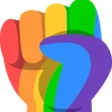The term “lesbian masterdoc” has become one of the most talked-about topics in LGBTQ+ online spaces. It refers to a document that attempted to help people, particularly women, explore their sexual orientation and understand what it might mean to be a lesbian. While some see the lesbian masterdoc as a helpful self-discovery tool, others view it as flawed, oversimplified, and even controversial. In this article, we’ll break down everything about the lesbian masterdoc — from its origins to why it became a cultural flashpoint, its impact on lesbian identity, and how it relates to the wider LGBTQ+ community.
Looking for more context about lesbian identity? Learn more about the sapphic flag here.
Table of Contents
Understanding the Lesbian Masterdoc
What is the Lesbian Masterdoc?
The lesbian masterdoc is an online document originally created as a guide for women questioning their sexual orientation. It posed a series of reflective prompts designed to help them consider whether they might be lesbian rather than bisexual or heterosexual.
While it gained popularity on social media platforms like Tumblr and Twitter, the lesbian masterdoc also sparked intense debates because of its simplified approach. Many saw it as reinforcing stereotypes about attraction and relationships.
Why It Was Created
The creator aimed to help women experiencing confusion about their feelings toward men and women. At its core, the lesbian masterdoc sought to validate same-sex attraction and challenge compulsory heterosexuality — the social pressure for women to date men even if they don’t feel genuine attraction.
The Controversy Around the Lesbian Masterdoc

Why is the Lesbian Masterdoc Controversial?
The lesbian masterdoc is controversial for several reasons:
- It sometimes presented being bisexual as a stepping stone to being lesbian, which many bisexual people found dismissive.
- It oversimplified the complexity of sexual orientation.
- It lacked inclusivity for nonbinary and gender-diverse people.
Many in the LGBTQ+ community have discussed whether the document unintentionally invalidated other queer identities. Check out our detailed take on sapphic vs. lesbian to understand the nuance.
Debates Within the LGBTQ+ Community
The debate often centers around whether self-help tools like the lesbian masterdoc can truly capture the diversity of lesbian experiences. Critics point out that relying on a checklist might lead people to mislabel themselves.
The History of Lesbian Identity
Early Lesbian Culture
Long before the lesbian masterdoc, lesbian identity existed in literature, activism, and culture. From the poetry of Sappho to early 20th-century lesbian bars, women have sought community and visibility.
The Rise of Online Lesbian Communities
Digital spaces have played a huge role in shaping modern lesbian identity. Platforms like Tumblr created an environment where documents like the lesbian masterdoc could spread rapidly.
Understanding Terms Like Lavender Lesbian

What Does Lavender Lesbian Mean?
The term “lavender lesbian” emerged in the 1970s during a time of tension within feminist and lesbian activism. It was used both as a self-identifier and, sometimes, as a stereotype for more politically active lesbians.
Cultural Impact
Today, “lavender lesbian” still appears in discussions about lesbian culture and identity, often alongside debates about terminology in the lesbian masterdoc.
Self-Discovery and Sexual Identity
How the Lesbian Masterdoc Helps Some People
For some women, the lesbian masterdoc was a revelation. It provided a framework for self-reflection at a time when they had few other resources.
The document also introduced ideas like compulsory heterosexuality and emotional attraction versus sexual attraction.
Limitations of the Lesbian Masterdoc
However, the lesbian masterdoc isn’t a one-size-fits-all guide. Self-discovery is complex and personal, and no single document can dictate your orientation.
Finding Community
Online Lesbian Spaces
Online forums, dating apps, and chat rooms have become essential for lesbians seeking connection. Check out our free lesbian chat guide here for tips on meeting people safely.
Offline Community Building
From Pride events to local lesbian bars, offline spaces still play a huge role in fostering community.
Lesbian History and Firsts
Who Was the First Girl to be Lesbian?
It’s impossible to pinpoint the “first” lesbian in history. However, ancient texts, art, and records show that same-sex love among women has existed in every culture and era.
Modern Lesbian Visibility
From famous actresses to public figures, representation matters. The lesbian masterdoc exists within a larger fight for visibility.
Resources for Lesbian Identity
Which is the Best Lesbian Site?
There are many great sites for lesbians to learn, connect, and date. Our lesbian dating tips for beginners is a great place to start.
Other Helpful Resources
Podcasts, books, and online forums can offer diverse perspectives on identity beyond the lesbian masterdoc.
Moving Beyond the Lesbian Masterdoc
Evolving Conversations
While the lesbian masterdoc has been criticized, it sparked necessary conversations about identity, attraction, and self-understanding.
A Call for Inclusive Dialogue
The future of lesbian and queer spaces should prioritize inclusivity, recognizing that identity is fluid and deeply personal.
FAQs
Why is the lesbian masterdoc controversial?
It oversimplifies sexual identity, sometimes excludes bisexual experiences, and may unintentionally reinforce stereotypes.
What does lavender lesbian mean?
A historical term from the feminist movement referring to politically active lesbians.
Which is the best lesbian site?
It depends on your needs — dating, community, or education. See our best first date ideas for lesbian couples for inspiration.
Who was the first girl to be lesbian?
No one knows exactly, but women loving women have existed throughout history.
Conclusion
The lesbian masterdoc remains an important yet controversial cultural artifact in online lesbian spaces. While it has helped some women discover their orientation, it also serves as a reminder that no document can define your identity for you. Self-discovery is a journey that thrives on diverse perspectives, open dialogue, and community support.

